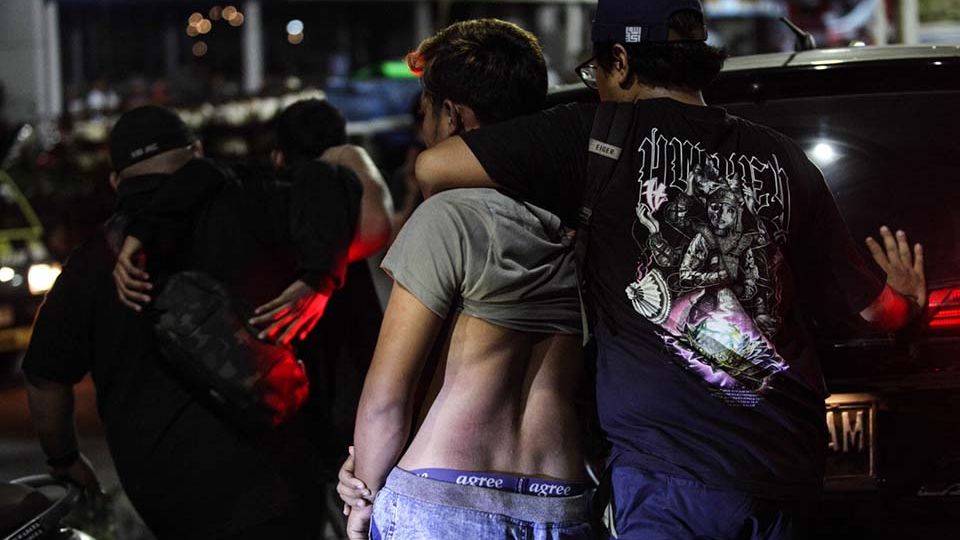June 28, 2024
JAKARTA – The government and law enforcement bodies need to improve mechanisms to prevent torture and excessive use of force by law enforcement enforcers, especially the police.
Between Jan. 1, 2020, and June 24 of this year, the National Commission on Human Rights (Komnas HAM) received a total of 282 reports of torture cases committed by law enforcement and other state bodies. The reports received covered torture during interrogation as well as of prisoners.
Most of the cases, or 176 reports, were committed by police personnel. The military and prison officers followed, with 15 and 10 reports respectively.
“Although the police already have guidelines they must adhere to when undertaking investigations, there’s still a gap in the implementation […] where human rights issues are still yet to be mainstreamed,” Komnas HAM commissioner Anis Hidayah said in a discussion on Wednesday.
Human rights group Amnesty International Indonesia also reported an increasing trend of torture by law enforcement in the last three years. During the 2021-2022 period, the group found 15 cases of torture, but the figure doubled in the 2023-2024 period.
Around 75 percent of all cases found by Amnesty were committed by police officers, deputy director Wirya Adiwena said.
“The ratification of the convention against torture is supposed to ensure that the authority held by law enforcement officers is not misused to oppress the public. Unfortunately, it still happens in Indonesia,” Wirya said.
He was referring to the United Nations Convention Against Torture, an international treaty aims to prevent torture and other acts of cruel, inhumane or degrading treatment and punishment around the world. Indonesia signed the treaty in 1985, but only ratified it in 1998.
“In the past 25 years, we have continued to see an increasing trend of torture cases [by law enforcers] in several areas and a rise of impunity of perpetrators,” Anis said.
Amnesty urged the government to ratify the Optional Protocol to the Convention Against Torture (OP-CAT), an agreement aimed at increasing independent monitoring of detention centers, to strengthen the mechanism for proactive prevention of torture and other human rights abuses.
“Without reaffirmation of [the convention], there will be many loopholes found by unscrupulous [officers],” Wirya said, asserting that excessive force was not proven to create any deterrent effect to reduce crime.
Read also: Police most reported to Komnas HAM over human rights violations
Komnas HAM’s report was published amid public scrutiny of the National Police following the death of a schoolboy, identified only as 13-year-old AM, in Padang, West Sumatra, who allegedly lost his life because of police brutality. His body was found on June 9 under a bridge in the city with suspicious blunt impact injuries to the abdomen and chest.
The Padang Legal Aid Institute (LBH Padang), which represents the victim’s family, alleged that the boy died after being tortured by police officers, who stopped him and his friends on suspicion of attempting to incite brawls. The LBH Padang reported the alleged torture of AM and seven other victims to the West Sumatra Police on Wednesday.
“The forms of alleged torture against AM and others included kicking, electrocution and burning with cigarettes,” LBH Padang director Indira Suryani said on Wednesday. “Based on the [victims’] testimony, the victims were also forced to kiss each other while under police custody.”
West Sumatra Police chief Insp. Gen Suharyono initially dismissed the allegations of violent acts against AM. However, he told the press on Thursday that the police force had found at least 17 officers alleged to have used excessive force against dozens of minors and teenagers arrested in the incident.
AM’s name was not on the list of arrested teens, Suharyono said, as reported by Kompas.
Benny Jozua Mamoto, a retired police general who is now serving as a commissioner of the National Police Commission (Kompolnas), admitted that police officers tortured suspects during arrest, interrogation and detention to get confessions.
He called on the National Police to use a scientific approach in its investigation, including by building a DNA database of criminals, instead of continuing to seek confessions from witnesses or suspects that could potentially lead to the use of torture.
Read also: Police bill raises alarm over sweeping surveillance
“By building a DNA database, when a crime occurs and there are traces of DNA found on the victim, [investigators] can immediately check with possible suspects around the victim,” Benny said, calling the sophisticated approach more accurate and effective.
He also urged police officers to wear body cameras when arresting suspects and to install CCTV in the interrogation rooms and detention centers.


